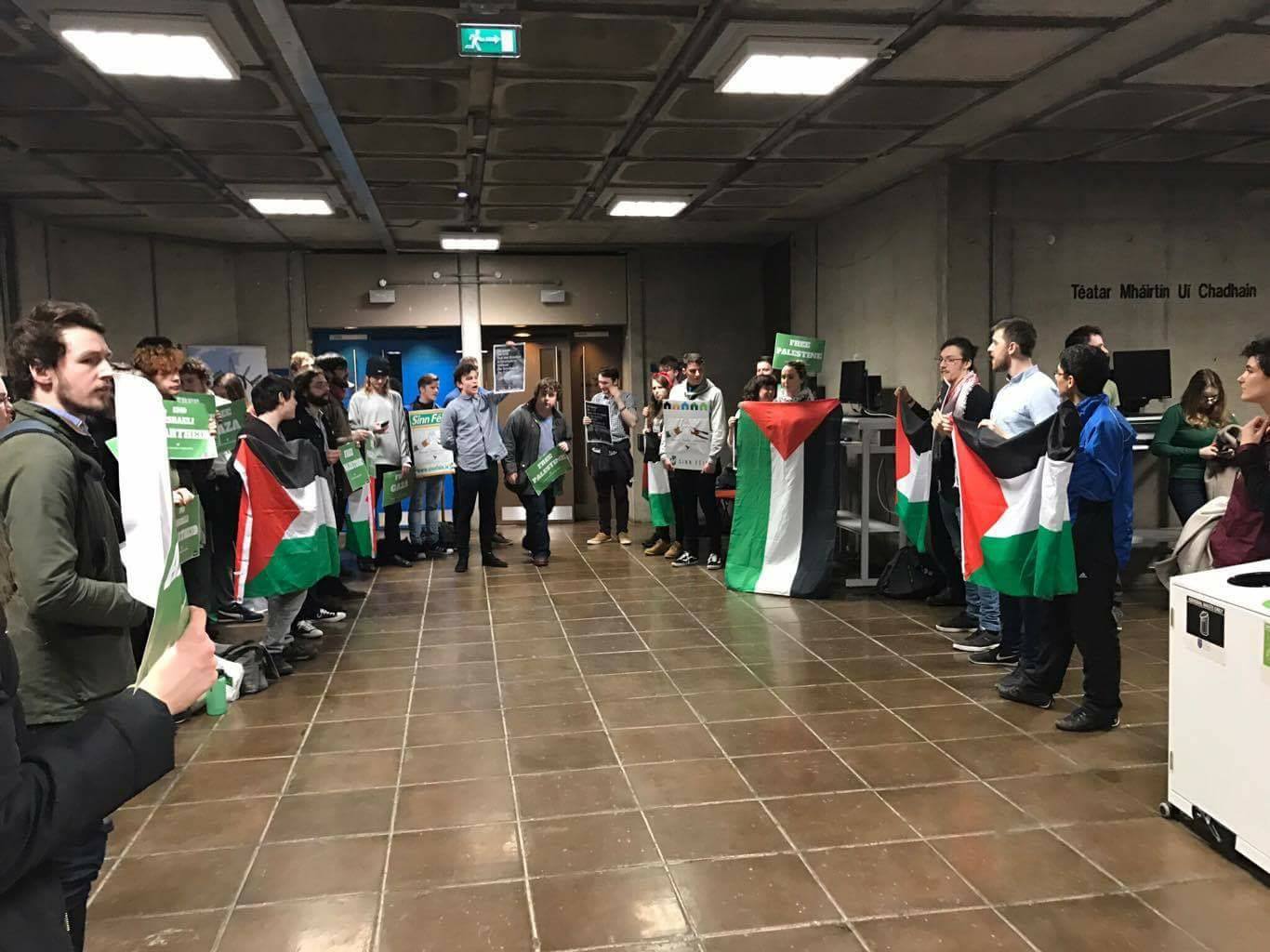Students for Justice in Palestine (SJP) have been fined €150 following their protest of a talk, organised by the Society for International Affairs (SoFIA), given by the Israeli ambassador to Ireland.
Speaking to Trinity News, Ciaran O’Rourke, one of the founding members of SJP, outlined how he attended two meetings with the Junior Dean, Professor Tim Trimble, on February 22 and 28. The reason for the summons was “conduct which frustrates the purpose of holding a previously authorised College event”. At the second meeting in which O’Rourke, a PhD student in the School of English, was accompanied by a representative from the Postgraduate Advisory Service, he was presented with two disciplinary options – a fine or a committee hearing – with O’Rourke choosing the latter, resulting in the fine.
On February 20, approximately 30 SJP protesters prevented the SoFIA question and answer session with the Israeli ambassador to Ireland, Ze’ev Boker, from taking place. At the time, O’Rourke said that the group were “calling for human rights for Palestine and for Palestinians” and also took issue with Boker “stating that the military siege of Gaza does not exist”. SoFIA released a statement the following day saying: “SoFIA recognises the Palestinian struggle and fully supports the right to peaceful protest. However, we feel it is deeply regrettable that in this circumstance, the opportunity to facilitate discussion between students and the Israeli ambassador, in a respectful and moderated way, was lost.”
In addition, College cancelled an event on the morning on which it was scheduled to occur, in which a petition of over 2,000 signatures was set to be delivered to Provost Patrick Prendergast on February 24. In emails seen by Trinity News, Director of Public Affairs and Communications, Tom Molloy, told the group that the Provost “is not in a position to accept the petition”. Molloy continued to say: “[the] handover was no longer possible once the protest had happened and sent such disturbing messages to the world about Trinity’s relationships with free speech.”
The Junior Dean did not respond to a request for comment.
Speaking to Trinity News, O’Rourke referred to the college statutes as recognising “the legitimate right of students to assemble and express grievances on campus”. “It’s worth noting that the Provost himself has openly acknowledged the importance of student activism in general, and of anti-apartheid activism on campus in particular.” O’Rourke continued: “For the SJP activists to be met with such condemnation and resistance by the TCD authorities in this context is beyond hypocrisy. To say the least, such an institutional response is unbecoming of TCD’s legacy as a beacon of anti-apartheid principles, and has sinister implications for the freedom of student activists on campus in general.”
The controversy comes after a review of “formal and informal relationships…in place between the university and institutions in Israel and Palestine” was conducted by the Academic Secretary, Patricia Callaghan, in September 2015. The review named eleven Israeli institutions with which College had an “academic relationship”. The review did not detail the extent of the relationships but included in its list Ariel University, which is situated in an illegal settlement under international law.







